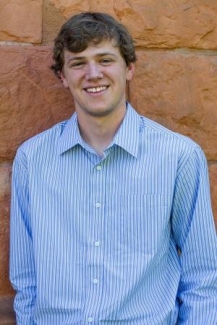The official University of Colorado press release is here: http://www.colorado.edu/today/2016/09/30/two-undergrads-score-prestigiou...
To be presented by retired Space Shuttle commander Dan Brandenstein, two CU Boulder students have received scholarships, $10,000 each, from the Astronaut Scholarship Foundation.
The awards ceremony, free and open to the public, will be held at 12:30 p.m. on Wednesday, Nov. 2, at Andrews Hall. It will include a presentation by Brandenstein, a NASA astronaut who logged close to 800 hours in space, as well as a dessert reception.
Matthew Winchester, a senior majoring in engineering physics, and Matthew Hurst, a senior studying aerospace engineering and applied mathematics, are among a handful of national recipients for 2016.
“Ever since I can remember, I have been fascinated by space and human space exploration,” Hurst said. “My dream is to one day become an astronaut. So to receive this award from a foundation so closely tied with the human space program is very meaningful to me.”
Winchester is working on a superradiant laser experiment at JILA – a joint institute of CU Boulder and the National Institute of Standards and Technology – that could help lead to significant improvements in the precision of lasers and atomic clocks. He is from Centennial, Colorado, and is a 2013 graduate of Cherry Creek High School. He says the award will allow him to continue focusing on his research at JILA.
Hurst is exploring multi-fidelity modeling techniques in aerodynamics. The techniques developed could lead to a reduction in the large amounts of time and costs currently required to design the shape of aircraft wings, he said. Hurst is from Lafayette, Colorado, and he graduated from Centaurus High School in 2013. He plans to use the scholarship to help finance his final year of college.
The merit-based ASF scholarship is the largest known monetary award of its kind given in the United States to science and engineering undergraduate students. The Mercury 7 astronauts, including Boulder native Scott Carpenter, who died in 2013, created the foundation in 1984. The purpose was to aid the United States in retaining its world leadership in science and technology by providing scholarships to the brightest college students pursuing these degrees.




